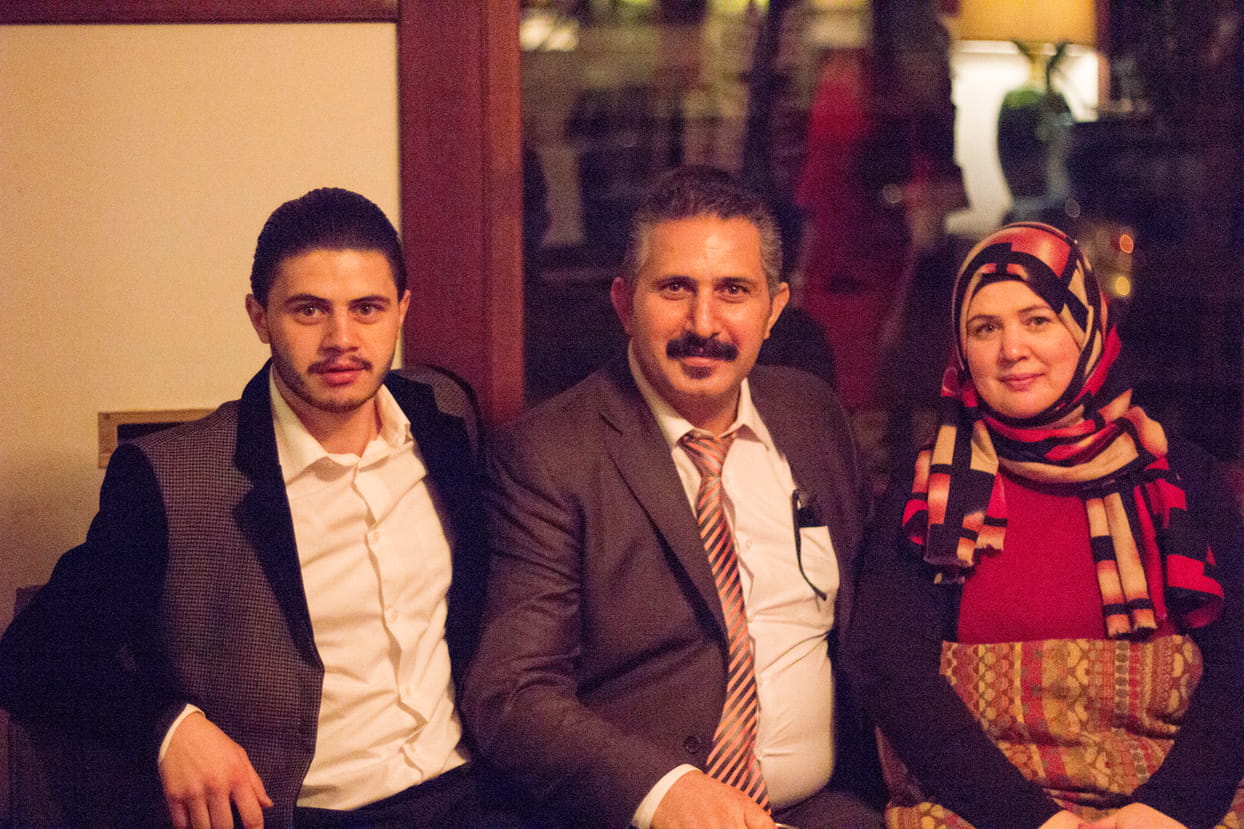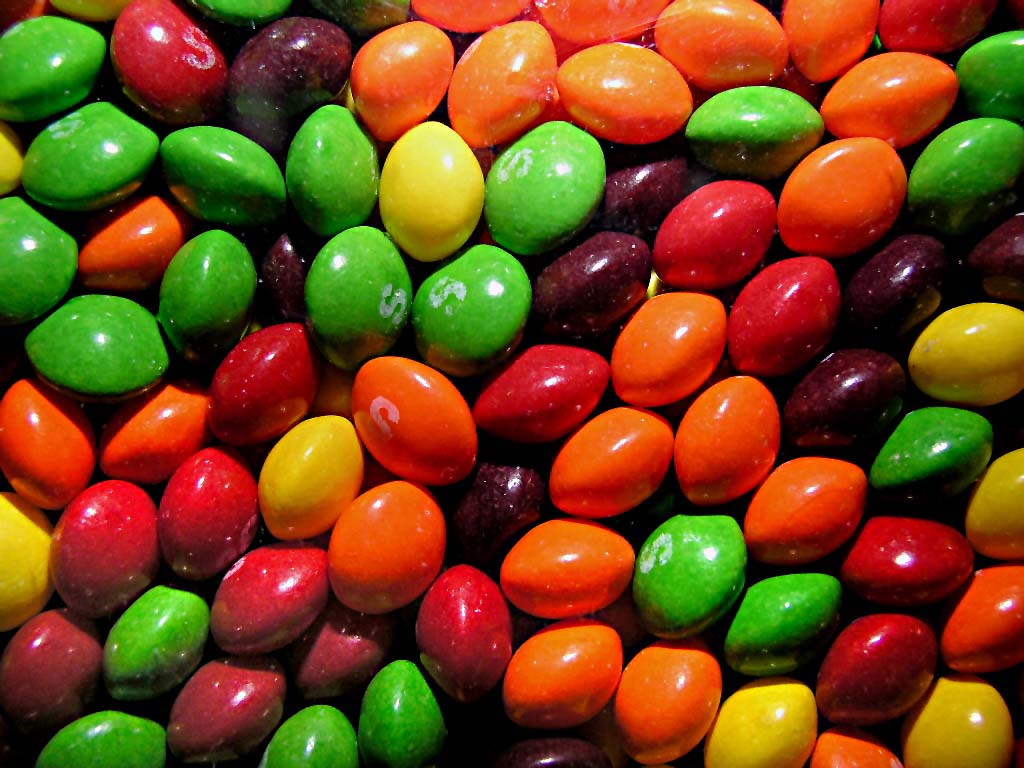This Unique Non-Profit Pop-Up Dinner Series Features Refugee Families As The Chefs

An accurate indication of having a good neighbor is sharing; they share tools, holiday cards, and favors, but the single most appreciable thing one can share with another is food.
This past Valentine’s Day, Miry’s List, a non-profit dedicated to aiding refugee families founded by Miry Whitehill, hosted its one year anniversary of a monthly event called New Arrival Supper Club, and on a day to celebrate love, this dinner did exactly that, only through food.
These monthly dinners are catered by a different New Arrival, or newly admitted refugee family, each time; Abdul, Maysa, and Amer Kanjo featured as the cooks for this evening.

Hostility and danger targeted the Kanjo home back in Syria, forcing them to leave familiarity and live for four years without a permanent address. Despite going through this tumultuous time of unrest and uncertainty, the Kanjos were able to prepare a meal that brought everyone savoring each bite right back to their mother’s kitchen.
Adbul and Maysa Kanjo dealt with the grueling process of coming into the U.S. to find refuge, and despite their arrival, the trouble of acclimating is what gets most refugees to question their decision.
Without any form of help these new arrival families are left to learn how to jump onto a proverbial treadmill set at max speed, and it doesn’t help that the overwhelming majority of citizens aren’t sure how to handle refugees.
The term itself sounds foreign— calling someone a refugee already alienates and creates a bubble around these families.
However, Miry’s List, and the families that are a part of it, is finding a different way to speak to the masses — through their stomachs.
“Nobody knows what refugees are, they don’t know what to do with them. But by doing dinners like this we can raise awareness of the problem and help aid anyone in The States who would need help,” Maysa Kanjo said.
Through simple acts of help a domino effect occurred within Miry’s List. More and more people decided that these New Arrival families were asking for nothing more than a helping hand, and, as a neighbor, that’s just what they should give.

“The refugee crisis is unsolvable, that’s a crisis. One family needing a jumper for their baby, that’s no problem, I could do that 100 times a day,” Whitehill said.
After visiting families and experiencing the love of cooking and feeding they all shared, Whitehill decided to host pop-up dinners where a new former refugee family would cater foods from their culture.
“Every time I go visit these families they wouldn’t stop feeding me, it was the most amazing, nurturing thing. It was so exciting to feel taken care of, it really motivated me to continue,” Whitehill said.
These dinners are not only a good way for the families to make a living, as 100 percent of the revenue from tickets goes to them, staff, and the organization they also allow a window into the lives of these refugees that isn’t often portrayed. With Los Angeles being one of the largest hosts of refugee families, this opportunity isn’t something to pass up.
The initiative led by this organization is admirable, to say the least, but the food is what really takes the cake.
Wednesday night was filled with Arabic culture, from food made by the hands of Maysaa and Abdul Kanjo, to Arabic music, and even belly dancing.
Though some attention was diverted from the beautiful dishes by the belly dancers, it didn’t take long for the aromas to catch the crowd.
The Kanjo family was initially worried that their food wouldn’t be finished, another part of Middle Eastern culture is to never leave leftovers, and with such a great number of people in attendance, the family of chefs doubled their quantity in anticipation.
It should be noted, Abdul, Maysaa and son Amer didn’t pick up their plates until every guest in attendance was fed. Standing behind the dishes they proudly served, the family would then explain what each dish was and helped share the best parts to each guest.
Rachel Castillo, a last-minute attendee who tagged along with her friend and member of Miry’s List, attested to the great opportunity this dinner took to better understand the refugee experience.
“Food is so many things, it’s representative of culture, it’s a way to show love as an action, it connects people to the place that they left, it brings life, and it’s delicious,” said Castillo.
And with having such a rich culture to share, the Kanjo family allowed the food to speak for itself.
Three large picnic tables ladened with trays upon trays of traditional Arabic cuisine were the star of the backyard setting. The smells of the rice and chicken lingered out into the front door, and the spinach and cheese pastries were stacked on top of each other like savory pyramids.
A crowd favorite was the fattoush salad, a simple yet decadent offering that consisted of veggies like cucumber, tomatoes, along with feta cheese and parsley. It stood out with the not-so-common fried pita chips on top, which added a perfect texture and crunch to the whole dish.
On the next table came one of my favorites of the night, baba ghanoush, a dip made of eggplant, tahini sauce, and olive oil. Mixing this with hummus might seem blasphemous but it’s a happy accident, as the two pair wonderfully on warm pita bread.

On top of that came Abdul and Amer Kanjo’s favorite dish, the roasted chicken with potatoes. A wonderful tip that I accidentally stumbled upon by way of stuffing my small plate with as much as I could, is to let the baba ghanoush shake hands with the chicken. Coating the chicken with the eggplant-based dish brings out the best of both worlds. The savory, tender chicken is brought to another level with the earthy flavors of the baba ghanoush.
While all the entrees so far were delicious, it wasn’t until dessert that I found my eyes rolling to the back of my head.
The Kanjos laid out their baklava in the shape of a heart smack dab in the middle of the table, knowing full well that this was what the people would want.
Baklava is sticky, it’s messy, and it’s hard to get right. Prepared differently than most other baklava, this one lacked the incredibly sticky exterior and kept all of the flavor right in the flaky middle. The bites were tiny, which made for each one to be savored respectfully and patiently.
After savoring my eighth piece of baklava, there was kanafeh, similar to baklava except it had cheese hidden inside of it. That might sound like a weird sweet and savory thing, but this cheese is buried within the sweet excess of sugar this pastry is dipped in. All of that is then topped with kataifi, a shredded and fried dough used to crown desserts, that fell from atop the kanafeh like snowflakes.

At the end of the night, after the toasts were made and dinner had finished, guests mingled pleasantly and it felt like any other family dinner — the goodbyes were long and many thank yous were exchanged.
The Kanjo family considered the night a success. Maysa Kanjo felt she did a mother’s duty by feeding her guests and Adbul Kanjo was glad everyone had a good time.
Now, their goal is to be a good example for other refugee families trying to adjust in the States, and allowing their son to thrive in a world of opportunity.
“Going back home wasn’t an option, so coming here gave us a chance to settle down. And we now live in a peaceful environment and are helped by many. Now we wish for a better future for our kids,” Maysa Kanjo said.
While the Kanjo family might’ve needed a translator to speak extensively to guests, a homemade meal made with love and care is a language anyone can understand.
Dinners like these are an important part of building a community. While they might seem easy to put together, they rely heavily on the public to keep them running. Donations and ticket proceeds are the primary way these families are able to get the essentials they need to thrive in a pricey place like Los Angeles.
Any and all donations towards Miry’s List are encouraged, helping refugee families get the supplies they need to continue these dinners helps grow a loving and diverse neighborhood.
If you are interested in donating to Miry’s List, donation options can be found here.






















